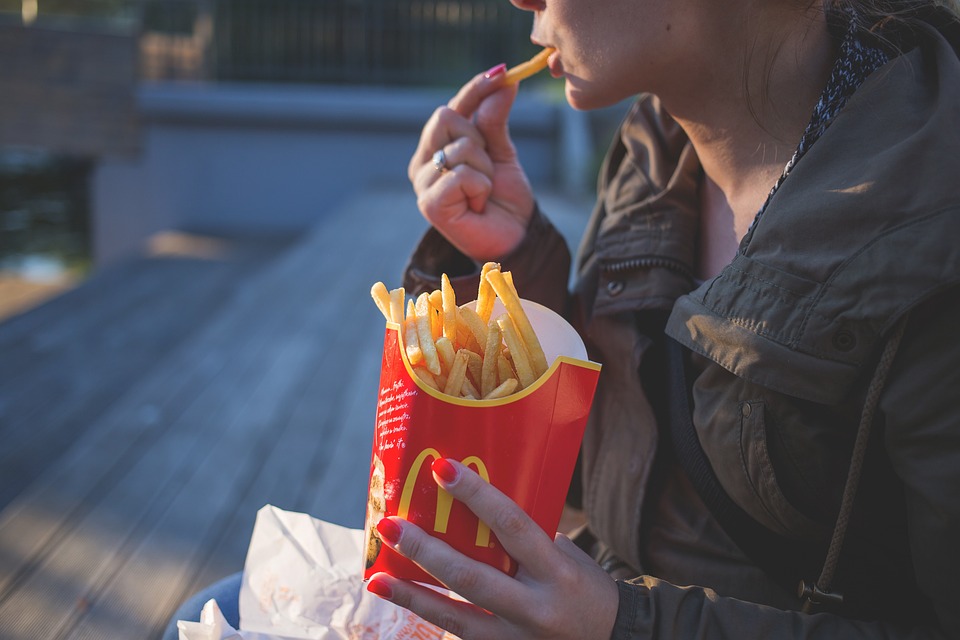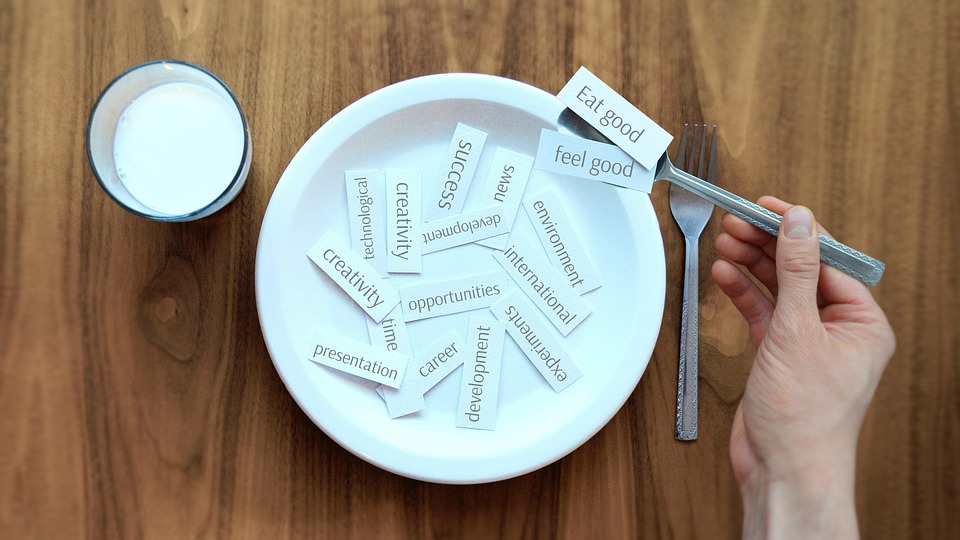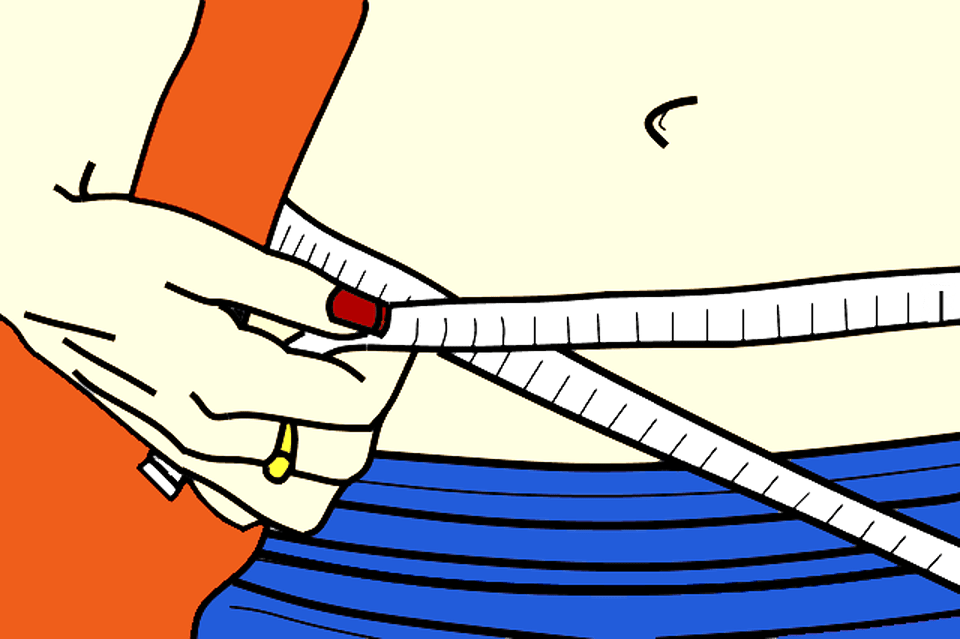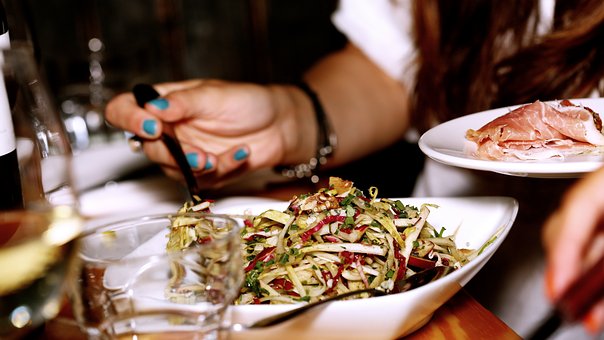
What is emotional eating, actually? Well, do you eat when you’re bored? Or upset? Or sad? When you are feeling down and desire to experience a different emotion, even a sensation of contentment, what do you do?
Did you answer yes to either of these questions? If so, that means that you have been participating in something called emotional eating, or when one consumes food to suppress a negative feeling.
We come across instances of people resorting to and even relying on, unhealthy eats to deal with their upsetting emotions in the media and everyday life. These foods tend to be calorie-dense and lack nutrition content.
Incredible though it may seem, being exposed to this situation occurring frequently leads to a reflexive response to trouble or unease. We essentially teach ourselves to deal with anxiousness or unhappiness by consuming more food than our bodies truly require.
The Science Behind Emotional Eating
There is proof that supports this statement.
Research from 1987 explored the differences in ice cream consumption among women who were limiting their caloric intake either to lose weight or maintain their weight, compared with those who did not, in stressful circumstances.
We discover how to cope with nervousness or distress by consuming more grub than our bodies truly require.
The data they gathered indicated that people who weren’t on a diet ate a smaller amount of food when they were feeling anxious compared to when they weren’t, whereas those on a diet ate a larger portion when they were feeling uneasy. When not feeling famished, the two groups of women ate the same amount with no discrepancies when they were agitated.
Research has indicated that our emotions don’t have a direct effect on how much we feel hunger unless we are deliberately trying to modify it by following a diet or deliberately restricting ourselves.
What’s Wrong With Emotional Eating?
Eating chocolate can be a way to alleviate feelings of depression or sadness. What’s so wrong with that?
It is ok to aid yourself in calming down negative emotions and giving yourself time to mend. Nevertheless, there are certain physical effects on your wellbeing when food is consumed other than to provide energy to the body.
A paper released in the American Journal of Physiology showed that snacking particularly at night can be responsible for as much as 25 percent of energy consumed in one day.
Generally, ingesting around 300 to 500 calories comes from a small number of items.
In addition, another study revealed notable links between pressure and emotional ingestion, which also result in greater biological risk factors related to diabetes and other long-term health problems.
What Can You Do About Emotional Eating?
Well crap, what do you do now?
Although the issue of excessive eating due to emotions or tension is debatable, yoga and mindfulness offer an effective method of dealing with it. Woohoo!
Yoga is commonly used with other treatments for those struggling with eating disorders and various psychological problems. It can help individuals ease their discomfort, experience relaxation, and acquire the authority to stop relying on unconventional methods that have only momentary results and may cause major complications in the future.
How do we do this in practice? In 2017, a research project was conducted to investigate the impact of a three-month Kundalini Yoga program on feelings of stress as well as the amount of cortisol and alpha-amylase in saliva. Scientists are able to assess stress levels by inspecting saliva samples.
Following three months of standard exercising, the people undertaking the experiment perceived a sudden decrease in their stress concentrations which tied in with a minimal amount of cortisol.
This research, with only a limited number of participants, wasn’t about emotional eating exactly, yet the findings can still be applied when someone is thinking about shoving a bag of granola down because “it’s the only thing good in their life at this moment”.
In addition to the excellent things in your life, we will reach new heights!
How Yoga and Mindfulness Can Help With Emotional Eating
Regularly engaging in your yoga practice allows you to become Focused, Energized, and Disciplined. It’s more difficult to permit feelings of distress and the mentality of, “I should get this,” to catch you while in this place.
The more you develop other habits such as frequent and regular yoga practice, even when you still have the urge to eat when you’re not hungry, the more it will:
- Make you aware of how strong/deep your cravings go by improving your mindfulness
- Acquaint you with your body through focused movement, breathing, and loving concentration (honoring your hunger and respecting your fullness)
- Build your confidence as you build your practice
- Adopt a flexible mindset
- Give you something else to do
Certified Eating Disorder Specialist Kerry Heath, LPC-S, NCC, CEDS-S of Choosing Therapy, an online therapy platform, explains further:
” Most treatment plans include the utilization of natural approaches to deal with emotional eating. Practicing mindfulness enables individuals to concentrate on the present moment. Doing exercises like yoga can be a great aid in teaching ourselves to concentrate on the present moment. It is essential to be mindful of those who struggle with emotional eating, as their minds are oftentimes overwhelmed with pessimistic assessments of themselves.
Kerry Heath states that developing the ability to take care of oneself and peacefulness are both essential pieces of the puzzle when it comes to recovering from an eating disorder or an affliction linked to a poor body image and an unhealthy connection with food. One can learn to take care of themselves and reprogram negative thinking, hence, interrupting the typical pattern of managing feelings with either over or undernourishment.
Yoga and mindfulness can look different for everyone. For some, ninety minutes of yoga can constitute doing a variety of Sun Salutations, inversions, and poses that require balance.
For some, tranquility can be found in sitting still, soothing their minds with meditative activities, and relishing the sounds of life around them, along with the delight of smelling grass, flowers, and rain. No matter what it means to you, this practice can assist in restoring your sense of self and recognizing that food has an appropriate role in your life. Additionally, it can provide the opportunity to adjust and flourish in a content and healthful way!
11 Ways to Manage Your Emotional Eating
Acknowledge Your Thoughts And Feelings
Acknowledge that emotional eating is occurring in order to be able to effectively reduce it. Acknowledging your own habits is vital so you can make modifications. If you can, inhale deeply and articulate aloud or internally what your emotions are. I am frightened to contemplate the upcoming events, and uneasiness has made it impossible for me to keep my composure.
Recognizing the emotions that lead to an unhealthy way of eating is an excellent initiation to breaking this behavior. When you are triggered, asking yourself questions about your behavior can help:
- Will I feel better after I eat this?
- Are there other things that could help right now with my anxiety?
- What can I do in my day to replace this habit? (e.g. music, calling a friend, exercise, journaling)
Generating a couple of strategies to call upon when you find yourself in a situation that makes you want to eat impulsively can be beneficial.
Reduce Exposure To Your Triggers
People are exposed to an enormous amount of information nowadays from news, images, and social media updates, which can be extremely taxing. People tend to spend much more time-consuming media than before. If you are sensitive to this, try not to have too much. Set aside a certain time for checking in with yourself, ideally not when you are eating. Concentrate on situations in life that you can manage when attempting to avoid stimulus that may induce an emotional or behavioral reaction.
Keep A Schedule
Create a plan for yourself to follow which includes having meals at designated times, and don’t veer away from it. This will help you to avoid using food as an emotional response. This enables you to identify when you are feeling hungry as a result of a physical need as opposed to an emotional one. Keeping to a set eating schedule can help the body’s hormones maintain equilibrium. Once you realize you’re full, it becomes more difficult to opt for a large helping of comfort food.
Formalize Your Eating Times
While snacking in pajamas while lounging on the couch, it’s easy to become disconnected from one’s physical and mental state. No matter what kind of food you’re eating, make sure to serve it up in a bowl or on a plate and sit at a designated spot to eat. Even if the food is a special treat, do not eat it standing up. Having a placemat, plates, and utensils helps to give structure to the meal. When you are seated at a dining table to consume meals and snacks, this creates an intentional process that encourages your heightened awareness when eating.
Aim To Have Natural Light Exposure Daily
Opt to sit somewhere that receives plenty of sunlight, around 11 o’clock in the morning until 1 o’clock in the afternoon. Getting natural sunlight can help to maintain your inner clock, a cycle strongly tied to your needing to eat and your food cravings. Being out in the sun during the middle of the day can help with controlling slumber, and getting satisfactory sleep is vital to impede emotional eating.
Keep High-Fiber Foods On Hand
Fiber keeps you fuller longer than many diet components. It can be appealing to bypass perishables under the unsure grocery supply chain conditions of the pandemic. Despite there being lots of easily perishable items, some options can last long; for example, apples, pears, citrus fruits, broccoli, cauliflower, cabbage, carrots, and sweet potatoes will remain edible for several weeks before going bad. A bowl of high-fiber, low-sugar cereal with either cow’s milk or plant-based liquid can really help make a person feel fuller.
Try Nutritional Wrapping
If you catch yourself with a hand in a bag of cookies, make an effort to stop and add some other items to your snack. Incorporating nuts and fresh fruit or vegetables, for example, apples, carrots, celery, or almonds into an emotional-eating episode can reduce the amount that you overeat. Foods high in water and fiber take longer to be broken down, thus leading to a feeling of being full and providing one with less ability to consume large amounts of their ‘binge’ food. No matter if you’re having an episode of emotional eating, this snack still adds essential nutrients and beneficial fibers to your body for long-term health.
Respect Your Fullness
Resist the FOMO. Your favorite snack, whether it be granola, almond butter, or something else, will be available when you are really feeling the need to eat.
It is unlikely to vanish suddenly (unless it manages to, you probably won’t deeply feel its absence). Use your breathing as a gauge to determine if you are still feeling hungry or not. Are you hungry at all? Can you manage this emotion by drinking some water, doing some stretching exercises, or focusing on something else?
Respecting the limitation of your appetite is equivalent to showing deference to your craving. Only take what you require but be aware when you do not need anymore and be thankful.
Build Your Confidence
Engaging in emotional eating can cause us to get caught up in the harmful cycle of overindulging, feeling guilty over it, trying to restrict how much we eat, and then perhaps engaging in the same behavior again. This pattern can be damaging to our self-assurance when it comes to having control over our eating habits.
Developing a daily practice of yoga, even if it’s only for 10 minutes (if it is working it in your routine or relaxing before bedtime), helps to center you and makes it easier for dealing with every day worries.
Apart from that, it assists in developing an admiration for yourself so that you can stay disciplined and on track with something, regardless of the circumstances (this goes back to the “FED” approach- Focused, Energized, Disciplined -that was spoken about previously).
Adopt a Flexible Mindset
Yoga assists us to become aware of both our capabilities and the boundaries of our capacities. Yoga doesn’t require performing a Headstand or sustaining a 10-minute Plank. Nonetheless, you are advised to be present for yourself and abide by your body’s capacity.
We cannot alleviate our negative emotions simply by consuming food. Your digestive organs will not have the capacity to withstand such maltreatment and do not merit it.
In order to maintain a genuine, loving bond with our bodies, it is necessary to understand how to give them the right nutrition – when to consume food, when to exercise, and when to engage in other activities. The ability to process the current situation and our requirements logically, disregarding sentiments, is what will give us the capability to consider the present condition and our needs objectively.
Plan To Have Treat Foods On Your Day
It is essential to feel liberated rather than restricted in your food choices so that you don’t experience an urge to overindulge or eat out of emotional frustration. Make sure to designate a certain time each day to treat yourself, and establish a pattern or routine related to it. Find a cozy spot, such as your favorite armchair, near a window and light a candle or call one of your pals on speakerphone to make the most of the mini indulgence. Daily treating yourself to something special reduces the desire to have something that you should not. If you are confident you will be able to relish what you are eating, the chances of you overeating are reduced.
If it is difficult for you to resist the urge to consume the comfort food that elicits emotional responses, purchase the smallest package obtainable and divide it into individualized bits. Place them in separate containers for day-to-day allotments.
It is essential to be understanding towards oneself during difficult and taxing times, since we all have to go through episodes of intense pressure. Do not be too critical of yourself during such moments. Feeling embarrassed and disheartened about indulging in food for emotional reasons will not be beneficial, and it can only strengthen existing negative thought patterns, making it difficult to change your behavior. Give yourself a break during this trying period and prepare to accept and take care of the situation to the best of your ability.














